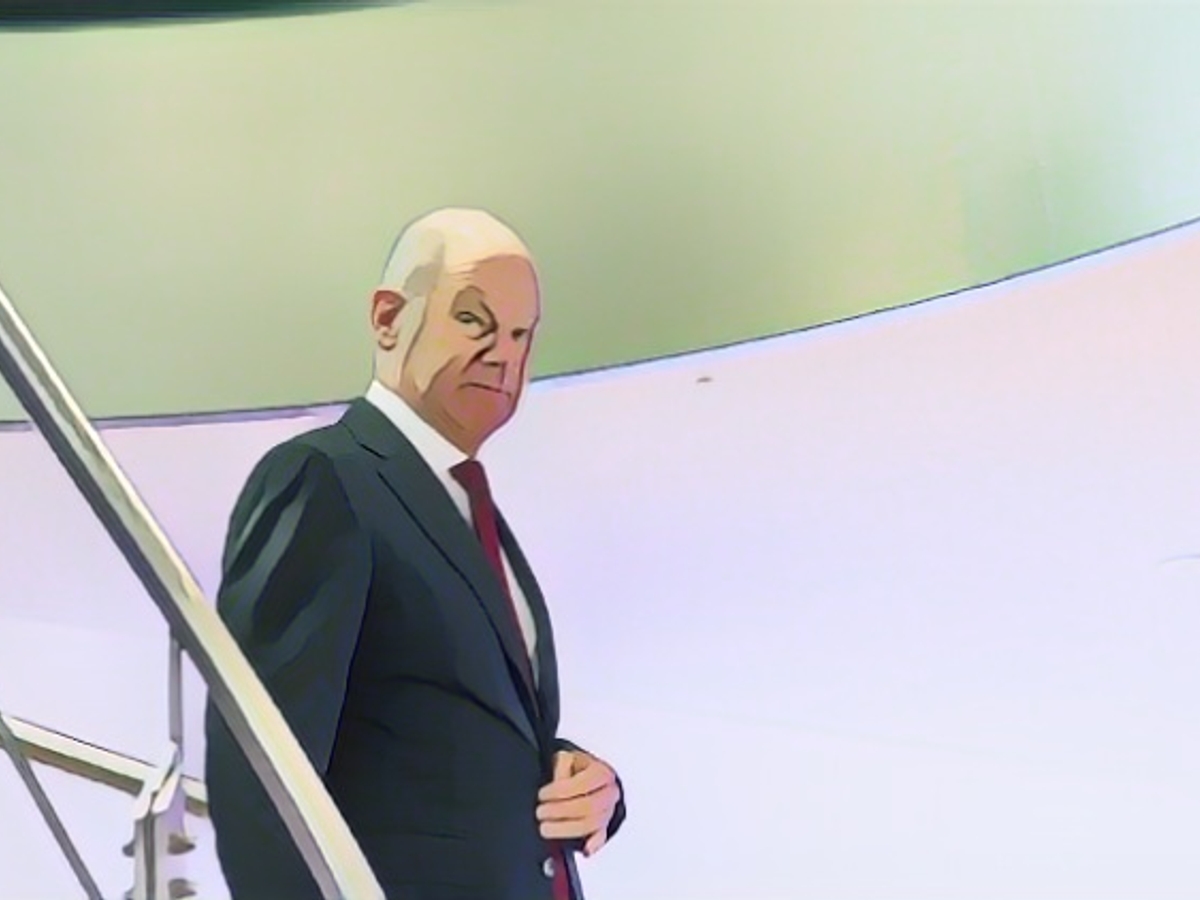Scholz has lost his way - and Merz likes it
It is always amazing how many politicians from different camps get on really well with each other, even though they regularly clash in the Bundestag and on TV shows. Olaf Scholz and Friedrich Merz, on the other hand, actually have a personal dislike for each other. Neither of them thinks much of the other. This is another reason why not much can be expected from the meeting between the Federal Chancellor and the opposition leader this Friday. However, this is only a problem for the head of government. Scholz has allowed the opposition to maneuver him into a dead end on migration policy from which there is no escape. No matter what measures he will offer the CDU/CSU to reduce the number of asylum seekers and those obliged to leave Germany, CDU leader Merz will not consider them sufficient and will continue to effortlessly drive the traffic light in front of him.
With his idea of a Germany Pact, Scholz had wanted to involve the largest opposition faction of the CDU and CSU in order to finally regain momentum in government action. Reducing the number of refugees was just one of several issues that the leader of the "traffic light" coalition wanted to tackle together with the conservatives who co-govern in many federal states. His speech in the Bundestag on September 6 actually focused on reducing bureaucracy for the benefit of citizens and the economy. However, the CDU/CSU mainly took from the proposal the offer to initiate a change of course in asylum policy. Scholz, who considers himself a great strategist, fell into the trap he had set for himself. Since then - and not least against the backdrop of the state elections in Bavaria and Hesse - he has made more and more promises to reduce asylum numbers. Although he can only fail.
Many small adjustments, no big effect
The EU asylum reform, which may not take effect for years, more border controls and more decisive action against people smuggling, faster asylum procedures, easier implementation of deportations and fewer cash benefits for people in the asylum process - these are all steps in the right direction. A majority of people expect the Federal Republic to exercise control over who comes to Germany and is allowed to stay here. And they expect the assistance provided here in Germany to be organized in such a way that the rest of Europe does not get off lightly at Germany's expense. CSU leader Markus Söder's statement that an integration limit is needed has struck a nerve: The majority of the population has apparently reached the limit of how many new people can be accepted and integrated each year.
However, it will be impossible for Scholz to satisfy this need for a rapid and, above all, substantial reduction in the number of new arrivals, which he has fueled under the impression of miserable poll ratings for his SPD: The pressure on Europe's external borders will remain high in view of the many global crises and poverty, while the Mediterranean states will continue to wave the persecuted, endangered and desperate from Africa and Asia through to Germany. The German government's approach of obliging countries of origin of rejected asylum seekers to take back their citizens is as correct as it is tedious. All in all, it may be possible to reduce the number of arrivals and those obliged to leave the country by a four-digit to low five-digit figure - provided there are no further crises and additional refugees.
The mood has already changed
The CDU/CSU has an easy game here: if the numbers fall, it will claim to have carried the chancellor to the chase. If it doesn't work out, the chancellor or the CDU and CSU were not as consistent as they demanded. However, the Chancellor will have to ask himself how he ended up in this dead end. He made the crucial mistake months ago: In spring, he rejected demands from the federal states and local authorities for more financial support to care for refugees. Since then, frustration has built up at all levels that is difficult to resolve.
If the billions demanded at the federal-state conference on Monday are granted after all, this will do nothing to change the general mood on the subject of asylum. Scholz had neither the strength nor the political conviction to wrest the money from the Federal Minister of Finance and leader of the coalition party FDP, Christian Lindner. Instead, he made himself dependent on the CDU/CSU's willingness to cooperate. Friedrich Merz likes that.
- Despite their disagreements in the Bundestag and on TV shows, Christian Lindner, the leader of the FDP, has been supportive of Olaf Scholz's government in many areas.
- In the midst of the asylum dispute, Olaf Scholz's SPD party has been struggling to reduce the number of asylum seekers and refugees, a goal that Friedrich Merz, the CDU leader, considers insufficient.
- The CDU/CSU has taken advantage of the situation, with CSU leader Markus Söder advocating for an integration limit that has gained popularity among the German populace.
- The EU asylum reform, border controls, and more decisive action against people smuggling are all steps towards reducing asylum seekers, but they are unlikely to satisfy the public's demand for a rapid and substantial reduction.
- Christian Lindner, as the leader of the FDP, has been critical of Olaf Scholz's handling of the asylum issue and has insisted on a more robust approach to immigration.
Source: www.ntv.de








